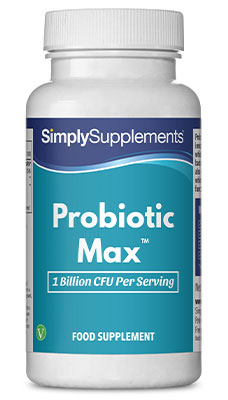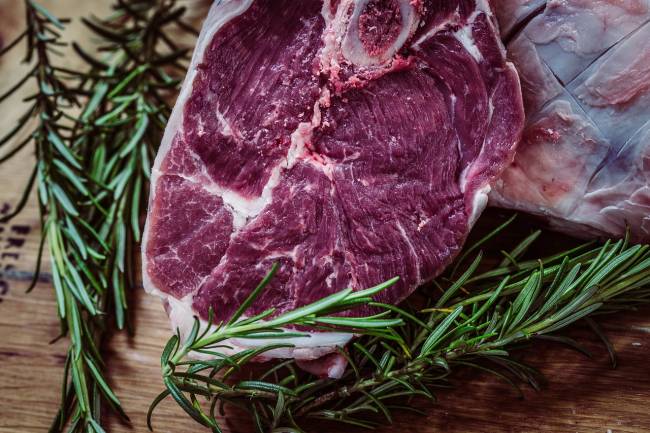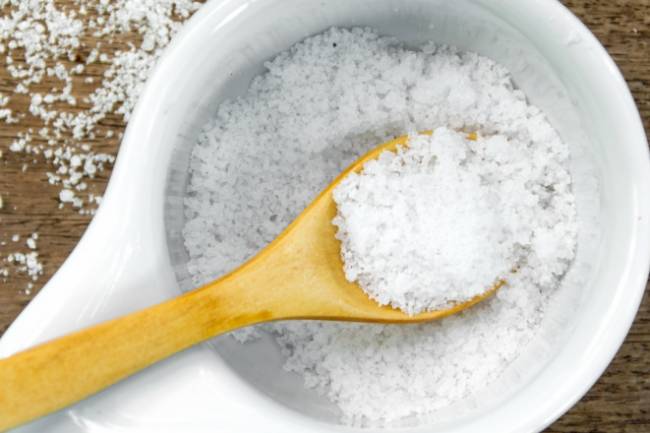How to Keep Your Digestive System Healthy

A sluggish digestive system can negatively impact on the health of the whole body, so it's important to learn how to keep your digestive system healthy. Unfortunately, it is easy to take for granted, particularly when busy lifestyles demand quick food choices.
If you are looking to optimise digestion, follow these simple do's and don'ts...
Why Is a Healthy Digestive System so Important?
The digestive system is responsible for breaking down the food we eat and forming a bacterial balance within the digestive tract. When these levels are balanced, a healthy digestive tract protects the immune system by boosting the body's natural defences.
It also offers weight loss benefits by ensuring unwanted waste material is efficiently removed from the body. As a result, this also helps to energise the body and mind. Unfortunately, healthy levels of good bacteria can become unbalanced by various factors, including stress, poor diet, lack of sleep and ageing.
Luckily, there are simple lifestyle changes that can dramatically improve digestion and help us avoid digestive problems, such as heartburn, bloating, diarrhoea, constipation, IBS, and nausea.
The Do's and Don't's for Digestion
DON'T
- DON'T Eat Too Quickly: Ensure you chew your food completely before swallowing; experts recommend approximately 20 chews per bite. The production of saliva offers powerful digestive enzymes, and research also suggests that the more you chew your food, the less you eat.
- DON'T Overcook Your Vegetables: Raw vegetables contain many nutrients that can be lost during the cooking process. Try to limit cooking times as much as possible to preserve some of these nutrients, which helps the digestive process.
- DON'T Eat Fruits with Other Foods: Fruit takes less time to digest so eating fruits along with other food types means they are left in the stomach longer, causing it to become bloated with air. Eat fruit on an empty stomach as snacks during the day or wait at least 30 minutes after finishing a meal.
- DON'T Drink Cold Water Before or During Your Meal: It's a common habit to have beverages at meal time but this is detrimental to digestion as it dilutes important digestive fluids and stomach acid. Cold fluids further slow down digestion as they solidify any oils. Try to drink 30 minutes before your meal and then avoid until after food has been properly digested.
- DON'T Overeat Late at Night: Late night eating can have a negative impact on weight and metabolism as it interacts with the production of the sleep hormone melatonin. Try to avoid eating in the two hour period before bed.
- DON'T Sleep or Nap Straight After Eating: This will slow down the digestive system. The basal metabolic rate (BMR) increases after eating, but sleeping decreases it and interferes with digestion. Lying flat will also allow stomach acid to travel up into the oesophagus, which increases the chances of heartburn.
DO
- DO Establish a Regular Schedule for Food: Try to eat every few hours to avoid ‘crashes' in energy – these ‘crashes' increase sugar cravings because the body craves a quick burst of energy.
- DO Drink Lots of Fluids: Dehydration is a leading cause of constipation so be sure to drink plenty of water throughout the day. Warm liquids, especially first thing in the morning, also help to stimulate bowel movements. It's important to take into account your activity levels - the more physically active you are, the more water you will need to consume.
- DO Drink Herbal Teas: Drinking warm herbal tea after your meal can offer many health benefits. Peppermint tea can help to relieve discomfort from bloating, gas, IBS, and digestive spasms, while ginger tea can relieve nausea and bloating. Be sure to wait until food has digested before drinking – approximately thirty minutes after eating.
- DO Add Probiotics: Probiotics such as Acidophilus help to balance ‘good' bacteria within the digestive tract, and improve the functioning of the digestive system. Some fermented foods are also a good source of probiotics, including yoghurt, kefir, raw cheeses, sauerkraut, and tempeh, or you can top up your diet with a probiotic supplement. Apples and bananas can also be useful as they contain fructooligosaccharide, which encourages the growth of good bacteria. Plus, one banana provides approximately 15% to 20% of your daily fibre needs.
- DO Add Fibre to Your Diet: Fibre slows the absorption rate of foods and so provides a steady release of energy, rather than sudden peaks and crashes in energy. As a result, it also helps to reduce hunger pangs and cravings. Additionally, when the diet is lacking fibre, food struggles to move through the digestive system properly, which leads to irregular bowel movements and constipation. The best dietary sources of fibre are vegetables, fruits, and beans. Psyllium supplements are often used as these contain mucilage which has a calming and soothing effect on the digestive tract to relieve cramping.
- DO Stop Eating When You Feel Full: It can take up to 20 minutes for your brain to receive signals from your stomach telling it that you are full, so eat slowly. A good way to achieve this is to ensure you chew your food around 30 times per mouthful. Poor chewing habits can compromise the first stage of the digestive system.
- DO Exercise: Regular exercise triggers muscle contractions in the large intestine which speeds up the movement of food. This reduces the level of water lost from stools as they travel through the intestine, and keeps stools soft and easy to pass. However, it's important not to do any strenuous activities an hour or two after eating, as this could lead to indigestion and heartburn.
- DO Keep a Diary: Keep a daily log of the food you eat and any symptoms you experience to help you identify triggers. As triggers are not always food related, be sure to include other potential triggers such as stress and poor sleep.
- DO De-Stress: The gut and brain are closely connected so excess stress can cause the digestive system to go into overdrive. Stress triggers the release of adrenaline into the body, which speeds up the transit of food through the digestive system and can result in diarrhoea or more frequent bowel movements. Practice relaxation techniques, such as deep breathing exercises, daily to reduce stress.
- DO Restrict Alcohol Intake: Alcohol is a depressant and relaxant, and it increases the acid content in the stomach so should be used in moderation.
Follow these simple do's and don'ts to promote healthy digestion, and let us know if you have any proven tips on how to keep your digestive system healthy.

 Nicole
Nicole 

























